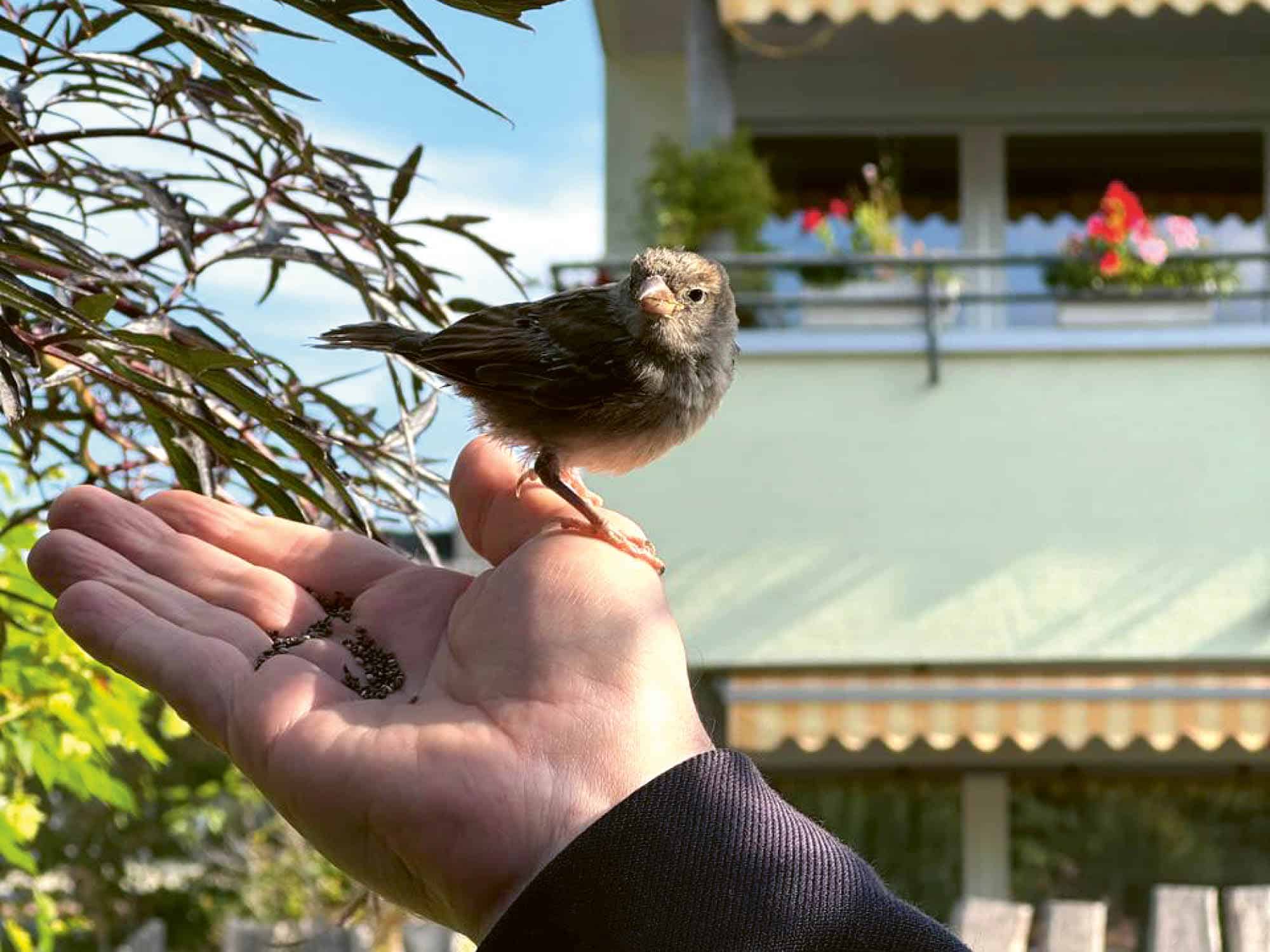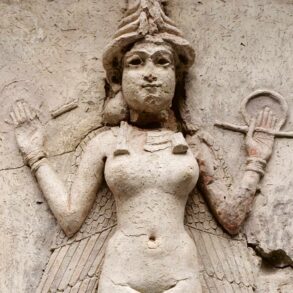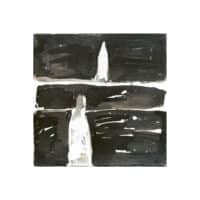A sparrow was sitting on a bush in front of the house. He didn’t seem to be afraid of us. I moved nearer to get a better look at the brave little bird.
As I carefully brought my hand closer, he got interested. A few seeds were enough to entice him to hop on my hand. After a couple of pecks, he took an even closer interest in the upright creature called a “human being”—me. His curiosity made him jump onto my shoulder.
I suggested the feathered fellow follow me into our house—but only if he wanted to—for a more generous snack. He stayed on my shoulder and then returned to my hand. He didn’t seem averse to this neighborly invitation. “The main thing,” I thought, ”is that he should be free to do as he pleases.” Of course, I still wanted him to stay with us. And he did. He pecked at a few more seeds and took a long sip from a small glass of water. What a joy! But we have to get back to work. Do you want to stay? Do you want to go? He obviously wanted to stay…
It’s hard to type on the computer with a sparrow exploring the keys. It’s very funny when he climbs on your fingers while you are trying to write a message on your smartphone, and then he sits on top of the device as if nothing happened… The joy that little sparrow brought to this little house was so great—as if the whole of heaven had come in to visit. He stayed for a while. But in a moment of carelessness, he was gone. And the house was suddenly so empty and so full at the same time.
He never came back. He was free. He remained free. Wasn’t that the secret of this encounter? And now, whenever we celebrate Michaelmas, I think of the bird again—I think of the dragon, and I think of the bird. And I ask myself: should we kill the dragon? Should we control it? Should we tame it, or should we simply enter into a relationship with it? Aren’t the familiar old images of fighting to defeat the beast from another time? Maybe they are still good in children’s stories, but for me? Today? What if it is, instead, about getting to know the dragon and forming an unforeseen friendship with it so that it finds its rightful place on its own? I need to meditate on this question some more…
Translation Laura Liska
Photo Xue Li










The end of the text is important and valuable, but the story with the bird is disappointing. It’s a nice phantasy, full of a nice purpose, but obviously an invention. This is not so nice because readers are left to believe that the author is some kind of neo-Saint Francis or a spiritual initiate describing his spiritual powers. It would be more honest to clearly present it as a nice fable.